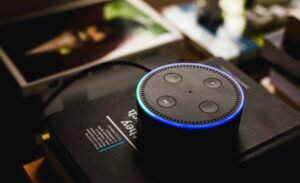AI Applications Engineer
An AI Applications Engineer is a professional who specializes in developing and implementing applications that utilize artificial intelligence (AI) technologies. This role combines the disciplines of computer science, data science, and software engineering to create innovative solutions that leverage AI algorithms and techniques.
Key Takeaways:
- AI Applications Engineers develop and implement applications that utilize artificial intelligence technologies.
- They are responsible for designing and optimizing AI algorithms to solve complex problems.
- These professionals work closely with data scientists and software engineers to develop AI-powered solutions.
- Strong programming skills, knowledge of machine learning algorithms, and problem-solving abilities are essential for success in this role.
**AI Applications Engineers play a crucial role in the development and deployment of AI-powered applications.** They are responsible for understanding complex business requirements, designing AI algorithms, and implementing them into functional applications. These professionals work closely with data scientists and software engineers to integrate AI technologies into existing systems or build new solutions from scratch.
Responsibilities of an AI Applications Engineer
**An AI Applications Engineer has a diverse set of responsibilities** that require a combination of technical skills and business acumen. Some of the key responsibilities include:
- Collaborating with stakeholders to understand business requirements and identify opportunities where AI can add value.
- Designing and developing AI algorithms and models to solve complex problems.
- Implementing AI solutions into software applications, ensuring they are scalable and performant.
- Testing and evaluating AI models to ensure their accuracy and reliability.
- Optimizing AI algorithms for efficiency and speed.
- Keeping up-to-date with the latest advancements in AI technologies and incorporating them into projects.
**One interesting aspect of this role is the opportunity to work with cutting-edge technologies and solve challenging problems**. AI Applications Engineers often work on projects that require them to push the boundaries of what AI can achieve.
Skills and Qualifications
To succeed as an AI Applications Engineer, **a combination of technical skills and domain knowledge is required**. Some of the essential skills and qualifications include:
- Strong programming skills in languages such as Python, Java, or C++.
- Knowledge of machine learning algorithms and frameworks, such as TensorFlow or PyTorch.
- Experience with software development and version control systems.
- Understanding of statistics and data analysis techniques.
- Ability to work with large datasets and implement data preprocessing techniques.
- Strong problem-solving and critical-thinking abilities.
*AI Applications Engineers are always learning and adapting their skills to keep up with the rapidly evolving AI landscape.* This enables them to deliver the best solutions to their clients or organizations.
Average Salary and Job Outlook for AI Applications Engineers
AI Applications Engineers are in high demand, **with a promising job outlook and attractive salary prospects**. According to recent surveys, the average salary for AI Engineers ranges from $90,000 to $150,000 per year, depending on experience and location.
| Location | Average Salary |
|---|---|
| San Francisco, CA | $140,000 |
| New York, NY | $130,000 |
| London, UK | $100,000 |
*The demand for AI Applications Engineers is expected to continue growing in the coming years as businesses across industries realize the potential of AI to drive innovation and gain a competitive edge.* This career path provides exciting opportunities for individuals passionate about AI and its applications.
Conclusion
**AI Applications Engineers are key players in creating AI-powered solutions** that drive innovation and solve complex problems across industries. Their diverse skill set makes them an invaluable asset, and their expertise enables them to leverage AI technologies to their fullest potential.

Common Misconceptions
Misconception 1: AI Applications Engineer only works on developing artificial intelligence algorithms
It is a common misunderstanding that an AI Applications Engineer solely focuses on developing AI algorithms. While algorithms do play a significant role in their work, AI Applications Engineers are responsible for a wide range of tasks beyond just algorithm development.
- AI Applications Engineers also work on designing and implementing AI-based solutions for various industries.
- They collaborate with domain experts to understand specific application requirements.
- They are involved in data preprocessing, feature engineering, and model evaluation to ensure the accuracy and performance of the AI models.
Misconception 2: AI Applications Engineer can completely replace human decision-making
Another common misconception is that AI Applications Engineers develop AI systems that can fully replace human decision-making. While AI technology has advanced significantly, it is important to understand that AI systems are designed to assist and augment human decision-making rather than completely replace it.
- AI Applications Engineers create AI models that can automate certain tasks and assist humans in making informed decisions quicker and more accurately.
- Human expertise and context are still crucial in complex decision-making processes, as AI models may have limitations or biases.
- It is the responsibility of AI Applications Engineers to minimize biases, ensure transparency, and validate the decisions made by AI systems.
Misconception 3: AI Applications Engineers only work in high-tech companies
Many people believe that AI Applications Engineers exclusively work in high-tech companies or startups. While it is true that AI is widely implemented in such industries, there are numerous other sectors that benefit from AI technology where AI Applications Engineers can find employment opportunities.
- Healthcare, finance, manufacturing, and retail are just a few examples of industries that increasingly rely on AI applications.
- AI Applications Engineers are needed in diverse organizations, including government agencies, research institutions, and consulting firms.
- AI Applications Engineers can contribute to various sectors by designing and implementing AI solutions tailored to their specific needs.
Misconception 4: AI Applications Engineers do not require domain expertise
Some may assume that AI Applications Engineers do not need any domain expertise as they focus solely on AI technology. However, having domain expertise is crucial for their work, as they need to understand the specific requirements and challenges of the industry or application they are working on.
- They work closely with domain experts to gain domain-specific insights and leverage their knowledge for better AI modeling.
- Understanding the domain helps AI Applications Engineers identify relevant data sources, features, and constraints for building accurate AI models.
- Domain expertise aids in interpreting and validating the results of AI models in the context of the industry or application.
Misconception 5: AI Applications Engineer can independently develop AI applications
Contrary to popular belief, AI Applications Engineers do not work in isolation to develop AI applications. Collaboration and teamwork are integral to their work, as building effective AI applications often requires multidisciplinary expertise.
- AI Applications Engineers collaborate with data scientists, software engineers, and domain experts to get diverse perspectives and build comprehensive AI solutions.
- Teamwork enables efficient development, rigorous testing, and integration of AI models into existing systems.
- Collaboration also helps to address the ethical, legal, and social implications associated with AI applications.

The Growth of AI in Various Industries
Artificial Intelligence (AI) is transforming diverse industries, enhancing efficiency and creating new opportunities. This table demonstrates the rapid adoption of AI across different sectors, showcasing the exponential growth and how it is advancing our society.
| Industry | AI Applications | Benefits |
|---|---|---|
| E-commerce | Personalized recommendations, chatbots, fraud detection. | Increased sales, improved customer service, enhanced security. |
| Healthcare | Diagnosis assistance, predictive analytics, drug discovery. | Early disease detection, personalized treatment, accelerated research. |
| Finance | Algorithmic trading, risk assessment, fraud prevention. | Improved accuracy, reduced human error, enhanced security. |
| Transportation | Autonomous vehicles, route optimization, traffic prediction. | Increase safety, reduced congestion, efficient logistics. |
| Marketing | Customer segmentation, campaign optimization, market forecasting. | Targeted advertising, improved ROI, data-driven decisions. |
AI Engineer Job Opportunities
The rise of AI has created a significant demand for skilled AI engineers. This table highlights the top industries hiring AI engineers and the average yearly salaries offered, providing insights into promising career prospects in the field.
| Industry | Annual Salary |
|---|---|
| Technology | $150,000 |
| Finance | $135,000 |
| Healthcare | $130,000 |
| Retail | $120,000 |
| Manufacturing | $115,000 |
AI Impact on Job Roles
AI is reshaping traditional job roles across various industries. This table demonstrates how AI is transforming existing job positions, requiring professionals to adapt and acquire new skill sets to stay relevant in the ever-evolving job market.
| Job Role | AI Impact |
|---|---|
| Customer Service Representative | Automated chatbots handle basic inquiries, allowing reps to focus on complex issues. |
| Legal Researcher | AI-powered tools provide fast and accurate legal research, reducing manual efforts. |
| Software Developer | AI algorithms are integrated into software development, transforming the development process. |
| Marketing Analyst | AI tools aid in data analysis and market research, enabling analysts to extract valuable insights more efficiently. |
| Financial Analyst | AI platforms assist in data analysis, risk assessments, and predicting market trends. |
AI Ethics and Regulations
As AI continues to advance, important ethical considerations and regulations arise. This table provides a glimpse into the key concerns surrounding AI ethics and the regulatory efforts in different countries.
| Concerns | Regulatory Efforts |
|---|---|
| Privacy and Data Protection | GDPR in Europe, CCPA in the United States. |
| Algorithm Bias | Algorithmic Impact Assessment (AIA) guidelines by the EU. |
| Job Displacement | Development of labor market policies to address technological unemployment. |
| Autonomous Weapons | UN discussions and establishment of guidelines for the use of autonomous weapons. |
| Transparency | AI transparency frameworks developed in academia and industry. |
AI-Powered Virtual Assistants
Virtual assistants, driven by AI, have become an integral part of modern life. This table highlights the most popular AI-powered virtual assistants, their capabilities, and the estimated number of users worldwide.
| Virtual Assistant | Capabilities | Estimated Users |
|---|---|---|
| Siri | Voice recognition, on-device commands, smart home integration. | 1 billion+ |
| Alexa | Voice command, personal assistant, home automation. | 100 million+ |
| Google Assistant | Web search, device control, natural language processing. | 500 million+ |
| Cortana | Task automation, reminders, email management. | 400 million+ |
| Bixby | Voice recognition, smartphone control, language translation. | 300 million+ |
The Future of AI-Enhanced Healthcare
AI is revolutionizing healthcare by enabling more accurate diagnostics and personalized treatments. This table showcases promising developments in AI-enhanced healthcare and the potential impact on patient care.
| AI in Healthcare | Advancement |
|---|---|
| Medical Imaging | AI algorithms aiding radiologists in detecting and diagnosing diseases from medical images with high accuracy. |
| Genomics and Precision Medicine | AI analyzing vast genomic datasets to identify genetic markers for diseases, enabling personalized treatment plans. |
| Drug Discovery | AI algorithms rapidly screening large chemical libraries for potential drugs, expediting the discovery process. |
| Remote Patient Monitoring | AI-enabled wearables and IoT devices monitoring patient health remotely and alerting healthcare professionals to anomalies. |
| Medical Chatbots | AI-powered chatbots offering triage and basic medical guidance, reducing unnecessary visits to healthcare facilities. |
AI in Environmental Conservation
AI technology is being utilized to address environmental challenges and promote sustainability. This table highlights the applications of AI in environmental conservation, fostering more efficient and effective efforts to protect our planet.
| Environmental Challenge | AI Applications | Benefits |
|---|---|---|
| Wildlife Conservation | Image recognition to identify and track endangered species, predictive models for poaching prevention. | Enhanced conservation efforts, efficient resource allocation, reduced wildlife crime. |
| Climate Change | Data analysis and modeling for understanding climate patterns, optimizing renewable energy resources. | Improved climate predictions, informed policy decisions, increased use of sustainable energy. |
| Deforestation | Remote sensing for monitoring forest cover, AI algorithms for identifying illegal logging activities. | Real-time monitoring, timely intervention, reduced deforestation rates. |
| Ocean Conservation | AI-powered underwater drones for marine life observation, data analysis to detect water pollution. | Enhanced marine biodiversity preservation, early pollution detection, efficient clean-up efforts. |
| Air Quality | AI-based sensor networks for monitoring and analyzing pollution levels, predictive models for air quality forecasting. | Improved air quality management, informed environmental policies, healthier communities. |
The Ethical Challenges of AI
The rapid advancement of AI brings forth ethical dilemmas that require careful consideration. This table presents some ethical challenges posed by AI and promotes thoughtful discussions regarding their impact on society.
| Ethical Challenges | Considerations |
|---|---|
| Job Displacement | The need for reskilling programs and reevaluating societal measures of success. |
| Data Privacy | Ensuring individuals’ control and consent over their personal data and preventing misuse. |
| Algorithm Bias | Addressing biases in AI algorithms to prevent discrimination and injustice. |
| Autonomous Weapons | Establishing international regulations to prevent misuse and ensure accountability. |
| Human-AI Interaction | Developing frameworks that ensure AI systems respect human values and operate ethically. |
Conclusion
Artificial Intelligence is transforming industries, creating job opportunities, and raising ethical concerns. Its growth is fueled by its wide-ranging applications, from healthcare and finance to marketing and environmental conservation. The demand for AI engineers is skyrocketing, promising lucrative career prospects in various sectors. However, the ethical implications of AI development cannot be ignored. It is crucial to establish regulations, promote transparency, and address ethical dilemmas to ensure AI is harnessed for the betterment of society. As AI continues to evolve, embracing its potential while mitigating risks will pave the way for a brighter future.
Frequently Asked Questions
What is an AI Applications Engineer?
An AI Applications Engineer is a professional who applies artificial intelligence (AI) technologies and techniques to develop practical solutions for various industries and domains.
What are the key responsibilities of an AI Applications Engineer?
An AI Applications Engineer is responsible for designing, developing, and deploying AI applications that can solve complex problems, improve efficiency, automate processes, and enhance user experiences. They also analyze data, build machine learning models, and collaborate with cross-functional teams to drive innovation.
What skills are required to become an AI Applications Engineer?
Some essential skills for an AI Applications Engineer include strong programming skills (Python, Java, etc.), expertise in machine learning algorithms and frameworks (TensorFlow, scikit-learn, etc.), data analysis and visualization, proficiency in natural language processing (NLP) and computer vision, and the ability to work with big data technologies.
What education is necessary to become an AI Applications Engineer?
To become an AI Applications Engineer, a bachelor’s degree in computer science, engineering, or a related field is typically required. However, advanced degrees such as a master’s or Ph.D. in AI, machine learning, or data science can offer a competitive advantage in the job market.
What industries can AI Applications Engineers work in?
AI Applications Engineers can work in a wide range of industries, including healthcare, finance, automotive, retail, manufacturing, telecommunications, and more. Any industry that can benefit from AI technologies and solutions can employ AI Applications Engineers.
What are some typical projects an AI Applications Engineer works on?
An AI Applications Engineer may work on diverse projects, such as developing AI-powered chatbots for customer support, implementing computer vision systems for autonomous vehicles, creating predictive models for financial forecasting, optimizing supply chain processes using machine learning algorithms, and designing AI algorithms for medical image analysis.
What is the career outlook for AI Applications Engineers?
The career outlook for AI Applications Engineers is highly positive, with a growing demand for AI technologies across industries. As organizations seek to leverage AI to drive innovation and gain a competitive edge, the need for skilled AI Applications Engineers is expected to increase significantly in the coming years.
Can AI Applications Engineers work remotely?
Yes, many AI Applications Engineers have the flexibility to work remotely. With the advent of cloud computing and collaborative tools, remote work has become more feasible, allowing AI Applications Engineers to collaborate with teams and develop solutions from anywhere in the world.
What are some related job titles in the field of AI?
Some related job titles in the field of AI include AI Engineer, Machine Learning Engineer, Data Scientist, AI Research Scientist, AI Consultant, AI Solutions Architect, and AI Product Manager. These roles may have different emphases or responsibilities, but they all involve working with AI technologies.
How can someone start a career as an AI Applications Engineer?
To start a career as an AI Applications Engineer, one can begin by gaining a solid foundation in programming, mathematics, and computer science through formal education or online courses. Building practical experience with AI tools, frameworks, and projects is also crucial. Networking, participating in AI-related communities, and showcasing a strong portfolio of AI projects can also help in securing job opportunities in the field.





